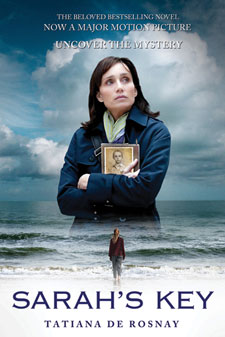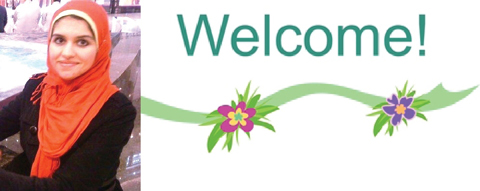BY IMANE FAWZY NOFAL
Whenever I write, it’s usually because something makes a striking impression on my heart. This time it’s a bundle of emotions ranging between sympathy, guilt, and bewilderment.
It begins with my love for reading and enthusiasm in continuing to do so. Recently, I began reading Sarah’s Key, a narrative by Tatiana De Rosnay. Through the reviews, I had known beforehand that it’s a book on the Jewish holocaust. I have known about the holocaust all my life but never tried to learn more or read up on it. Not because I didn’t care, but simply because I felt that it had nothing to do with my life as an Arab Muslim. The whole thing for me was that Nazi Germany despised the Jews and decided to exterminate them.
 Holding the book in my hands, I asked myself a few questions, “Are you going to hold your same prejudices against Israel and apply them here? Will you be truly objective? Will you link the Jews to Israelis? Can you make substantial differentiation as you have always claimed?” “Of course, yes!” was the immediate answer, which came out loud.
Holding the book in my hands, I asked myself a few questions, “Are you going to hold your same prejudices against Israel and apply them here? Will you be truly objective? Will you link the Jews to Israelis? Can you make substantial differentiation as you have always claimed?” “Of course, yes!” was the immediate answer, which came out loud.
But as I read, emotions like sympathy, and compassion began to overcome me and I felt I could not concentrate on the story. I didn’t want to end up directing my emotions to a certain end, but rather desired them to emerge naturally with no pushing from my conscious. I read on.
Thanks to Tatiana’s brilliant narration, I got completely caught up and overwhelmed in the story.
Sarah, the small Jewish girl, who had to wear a yellow star badge, captured me as she captured Julia Jarmond (the key character in the story, an American journalist investigating the roundup of Jews at the time). How could a yellow star identifying a religion, a kind of faith, so devastate a life, or rather a million lives! Having been discriminated against in every spectrum of life; at schools, shops, streets, etc, the Jews eventually found themselves gathered up in 1942 Paris, rounded up in a stadium in what was known as the Vil d’Hiver. When the French Police came to take Sarah and her family, she locked her brother up in a closet, promising to come back, thinking she is protecting him. She held on dearly to the brass key.
She would embark on a difficult journey, full of physical torments ranging from thirst, hunger and pain, as well as psychological ordeals; and witness suicides, deaths, miscarriages, her parents’ frailty and failing health, while all the time worried about the brother she had left in the hiding place. She then managed to escape from the hellish camp, with the help of a kind French couple, and got back to her apartment in Paris hoping to unlock and free him. But as she tugged at the door, “a rotten stench hit her like a fist … In the back of the cupboard, she glimpsed the small lump of motionless curled-up body … she saw the beloved little face, blackened and unrecognizable”. I wept and gasped along with her.
This is about humanity. It has nothing to do with religion, opinions or likes and dislikes. Such acts should be condemned anywhere and anytime.
But for me personally, it doesn’t end there. I can’t help thinking, some of those Jews are the ones who decided to occupy a space that isn’t theirs in the name of being a tortured nation. They are repeating the same savage acts done to them 70 years ago. Should I consider the holocaust a reasonable justification to the torments inflicted on Palestinians? How can their past ‘shoah’ at the time of war explain their present ‘shoah’ in Palestine?
I was taken back to 2008 when I’d read on the Telegraph:
A senior Israeli politician provoked controversy today when he warned that Palestinians firing rockets from Gaza would be punished with a “bigger holocaust” from Israeli armed forces.
The use of the Hebrew word for holocaust, “shoah”, tends to be used exclusively in Israel to describe the Nazi persecution of Jews.
In Sarah’s Key, Sarah committed suicide at the end because she could never live with her pain any longer and the burden of not knowing overwhelms Julia Jarmond, who unfolds Sarah’s story. Feelings of guilt, pain and sadness stir in me while turning every page of the novel. At the end of it all, I still believe what I did before I started the novel, that Jews of the past aren’t Israelis and the yellow star has nothing to do with the blue one.
Imane Fawzy Nofal is a translator, and mother of twin boys. She is an Egyptian who lives in Bahrain and blogs at Express It 2 Live It. Imane regularly shares her thoughts on human interactions and real life issues on DUNIA through her column Express it by Imane.
Also by Imane
Join our mailing list for your free monthly newsletter
…………………………………………………………………………
Disclaimer
Articles and comments on our website reflect the views and opinions of their individual authors, not the magazine as a whole.

